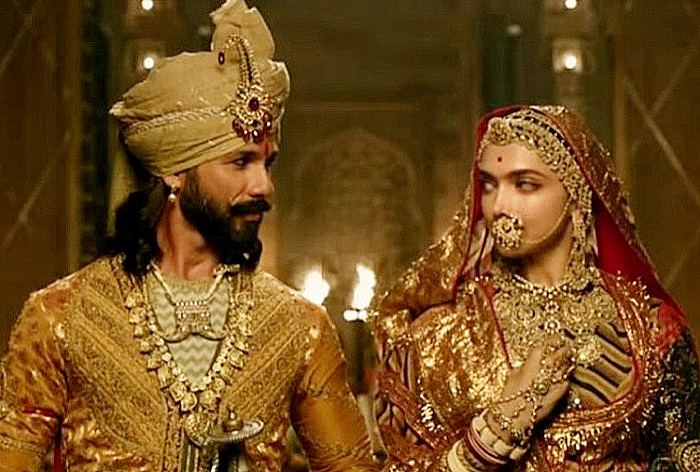
Bollywood, the crown jewel of India’s entertainment industry, is renowned for its dazzling musicals, elaborate costumes, and dramatic narratives. Yet, beneath the glittering surface lies a troubling trend: the persistent misrepresentation of Muslims. Despite being the second-largest community in India, Muslims often find themselves depicted as caricatures or stereotypes in mainstream Bollywood films. This issue has become increasingly pronounced in recent years, mirroring the rise of Islamophobia in Indian society.
Historically, Bollywood’s relationship with Muslim characters was more inclusive and respectful. During the 1950s and 60s, films like “Anarkali” and “Mughal-e-Azam” showcased the grandeur and cultural contributions of Indian Muslims. These portrayals were a reflection of a more secular and harmonious era. However, the political climate in India has shifted dramatically since the BJP came to power in 2014, bringing with it a surge of Islamophobic narratives.
Research by Zainab Sikander highlights how the BJP’s tenure has seen a rise in Islamophobia, which has permeated Bollywood as well. This shift is evident in films like “Padmaavat,” where Alauddin Khilji is portrayed as a barbaric villain, and “Panipat” and “Tanhaji,” which similarly demonize Muslim antagonists. Such portrayals are not just artistic choices but reflect a broader campaign to marginalize and vilify Muslims in Indian society.
The rewriting of history to diminish Muslim contributions is a worrying trend. The exclusion of Muslim rulers from an exhibition on medieval Indian dynasties by the Indian Council of Historical Research is a stark example. The council’s rationale that Islamic rulers destroyed Indian civilization echoes a narrative that seeks to erase the rich and complex history of Muslims in India. This erasure is mirrored in Bollywood, where Muslim characters are increasingly cast as invaders or enemies.
The global narrative post-9/11 that equates Islam with terrorism has further compounded the problem. Bollywood films like “Kabul Express,” “Baby,” and “New York” frequently feature Muslim terrorists, reinforcing the stereotype of Muslims as inherent threats. This depiction not only fuels Islamophobia but also misrepresents the reality of millions of peaceful, law-abiding Muslims. In “Sarfarosh,” the Muslim villain’s motives are linked to historical grievances, perpetuating the idea that Muslims are driven by an inherent animosity towards India.
Even when Muslims are portrayed positively, it often comes with caveats. The “good Muslim-bad Muslim” dichotomy is prevalent in films like “Chak De India” and “My Name Is Khan.” These films suggest that Muslims must prove their loyalty to India to be accepted, a standard not applied to characters of other faiths. This narrative places an unfair burden on Muslims to constantly demonstrate their patriotism.
Negative stereotypes of Muslim men as domestic abusers or negligent fathers are also pervasive. Films like “Darlings,” “Zindagi Na Milegi Dobara,” and “Secret Superstar” depict Muslim men in such roles, reinforcing harmful stereotypes. As Hanan Irfan points out, the issue is not the portrayal of flawed Muslim characters but the lack of diverse and positive representations. When Muslim men are repeatedly shown as violent or oppressive, it creates a distorted and damaging image of the community.
Muslim women in Bollywood face equally problematic representations. They are often shown as oppressed, hypersexualized, or in need of saving. Films like “Ae Dil Hai Mushkil” and “Gully Boy” depict Muslim women who must reject their religious practices to gain freedom or agency. This portrayal not only misunderstands the significance of Islamic practices like the hijab but also reinforces the stereotype that Muslim women are passive victims.
The love-jihad trope, which suggests that Muslim men seduce Hindu women to convert them to Islam, is another damaging narrative. This trope, seen in films like “Veer Zara,” “Pathan,” and “Ek Tha Tiger,” vilifies Muslim men and infantilizes Hindu women. It turns personal relationships into political statements, further entrenching religious prejudices.
In conclusion, Bollywood’s portrayal of Muslims has become increasingly troubling, reflecting and amplifying real-life Islamophobia. The industry’s reliance on stereotypes and negative tropes not only misrepresents a significant portion of the Indian population but also contributes to their marginalization. As Bollywood continues to influence millions, it has a responsibility to depict Muslims with the complexity and dignity they deserve. Authentic representation, free from political agendas and harmful stereotypes, is essential for fostering understanding and unity in a diverse society. Bollywood must strive to create characters and narratives that Muslims can see themselves in, characters that reflect their real lives, struggles, and aspirations. Only then can Bollywood truly celebrate the rich tapestry of Indian culture and society.
